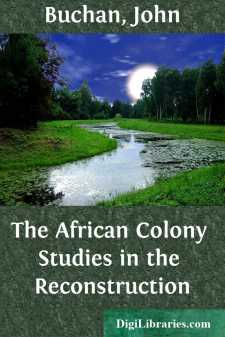Categories
- Antiques & Collectibles 13
- Architecture 36
- Art 48
- Bibles 22
- Biography & Autobiography 816
- Body, Mind & Spirit 145
- Business & Economics 28
- Children's Books 17
- Children's Fiction 14
- Computers 4
- Cooking 94
- Crafts & Hobbies 4
- Drama 346
- Education 58
- Family & Relationships 59
- Fiction 11834
- Foreign Language Study 3
- Games 19
- Gardening 17
- Health & Fitness 34
- History 1378
- House & Home 1
- Humor 147
- Juvenile Fiction 1873
- Juvenile Nonfiction 202
- Language Arts & Disciplines 89
- Law 16
- Literary Collections 686
- Literary Criticism 179
- Mathematics 13
- Medical 41
- Music 40
- Nature 179
- Non-Classifiable 1768
- Performing Arts 7
- Periodicals 1453
- Philosophy 66
- Photography 2
- Poetry 897
- Political Science 203
- Psychology 45
- Reference 154
- Religion 516
- Science 126
- Self-Help 85
- Social Science 82
- Sports & Recreation 34
- Study Aids 3
- Technology & Engineering 59
- Transportation 23
- Travel 463
- True Crime 29
Our website is made possible by displaying online advertisements to our visitors.
Please consider supporting us by disabling your ad blocker.
The African Colony Studies in the Reconstruction
by: John Buchan
Description:
Excerpt
INTRODUCTORY.
On the last day of May 1902 the signature at Pretoria of the conditions of peace brought to an end a war which had lasted for nearly three years, and had among other things destroyed a government, dissolved a society, and laid waste a country. In those last months of fighting some progress had been made with the reconstructionâat least with that not unimportant branch of it which is concerned with the machinery of government. A working administration had been put together, new ordinances in the form of proclamations had been issued, departments had been created and the chief appointments made, the gold industry was beginning to set its house in order, refugees were returning, and already political theories were being mooted and future parties foreshadowed. But it is from the conclusion of peace that the work of resettlement may fairly be taken to commence. Before that date the restrictions of war limited all civil activity; not till the shackles were removed and the civil power left in sole possession does a fair field appear either for approval or criticism.
It is not my purpose to write the history of the reconstruction. The work is still in process, and a decade later it may be formally completed. Fifty years hence it may be possible to look back and discriminate on its success or failure. The history when it is written will be an interesting book. It will among other matters deal with the work of repatriation, one of the most curious and quixotic burdens ever borne by a nation, and one, I believe, to which no real parallel can be found. It will concern itself with the slow and difficult transference from military to civil government, the renascence of the common law, the first revival of trade and industry, the restitution of prisoners, and the return of refugeesâall matters of interest and novel precedents in our history. It will recognise more clearly than is at present possible the problems which faced South Africa at the time, and it will be in the happy position of judging from the high standpoint of accomplished fact. But in the meantime, when we have seen barely eighteen months of reconstruction, history is out of the question. Yet even in the stress of work it is often sound policy for a man to halt for a moment and collect his thoughts. There must be some diagnosis of the problem before him, the end to which his work is directed, the conditions under which he labours. While it is useless to tell the story of a task before it is done, it is often politic to re-examine the difficulties and to get the mind clear as to what the object of all this strife and expense of money and energy may be. Ideals are all very well in their way, but they are apt to become very dim lamps unless often replenished from the world of facts and trimmed and adjusted by wholesome criticism.
Such a modest diagnosis is the aim of the present work. I have tried in the main to state as clearly as I could the outstanding problems of South African politics as they appear to one observer....











